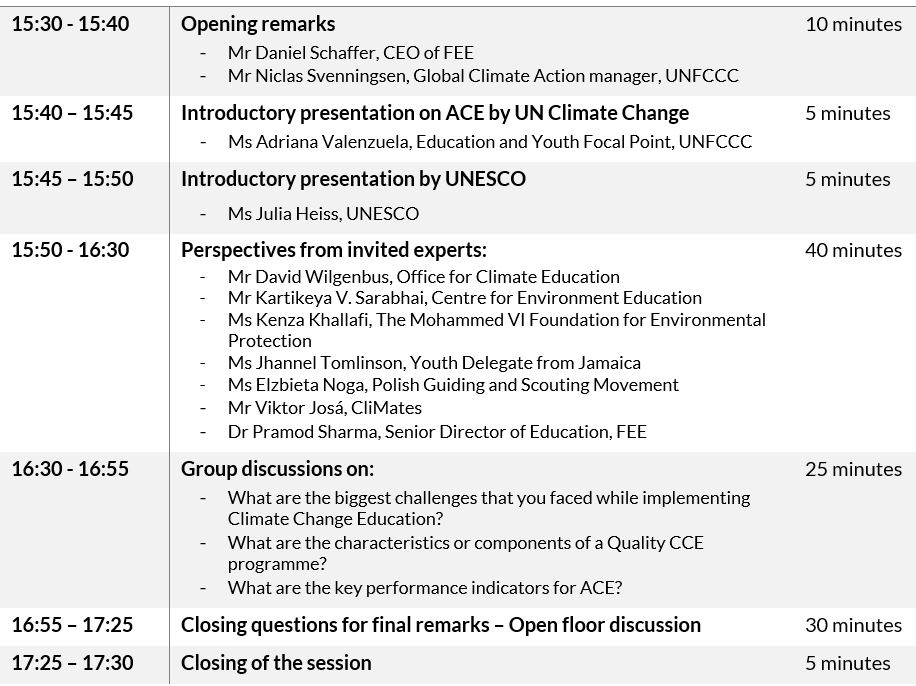Background
There is widespread agreement that Education is fundamental in order to effectively respond to the challenges we all face due to Climate Change. To achieve the goals set out by the Action for Climate Empowerment (ACE), education has to deliver both; awareness of the dangers being faced due to climate change and action competence to respond through adaptation and mitigation actions. At the same time, the technological solutions to mitigate and adapt to climate change are creating entrepreneurship opportunities and jobs. This requires education to also enable the transformation through equipping people with the necessary skills.
Ms. Christiana Figueres, the former Executive Secretary of the UNFCCC, identified climate change as a cross cutting issue and emphasized the need to not only study climate change, but to understand it by embedding it in the DNA of today’s very education concept to be able to understand the transformation and to be able to act on it.
Education about Climate Change is challenging. One aspect of the challenge is communicating the complex science of Climate Change and the other is to motivate people to take the actions required to adapt and mitigate for the diverse impacts it is having. The challenge for getting people to act through education is difficult as changes are perceived to be small and gradual and similar to what people have experienced, though in different intensities and frequency in their life time. Since the impacts of actions will not be visible in short time, the level of commitment required for persisting with the behaviours is of high order. Educational messages and processes need to be for diverse stakeholders living in diverse cultural, economic and geographical contexts.
Education stakeholders around the world who work with various target groups, in both formal and non-formal settings, are taking up this challenge and facilitate learning that leads to Positive Actions! The side event will discuss lessons learned and good practices in CCE. The deliberations and discussions should benefit the review of the Doha work programme on Article 6 in 2020. The session will also deliberate on the monitoring and evaluation of impacts of the educational activities that has been recognised as a challenge.
Objectives of the Session
Identify gaps and needs for implementation of ACE.
Discuss the challenges based on the experience of Climate Change Education projects/programmes in both formal and non-formal settings.
Deliberate upon the approaches of teaching and learning like socio-emotional learning, behavioural change education, project-based learning etc.
Identify experiences and learnings both from academicians and practitioners to contribute to a curricula framework that meets the educational rigor for ACE.
Suggest key features for an assessment and evaluation framework for Climate Change Educational programmes.
Recommendation for Quality Climate Change Education for ACE.
Outcome
A set of recommendations that is actionable by different stakeholders and will contribute to the implementation of ACE.
Format and Participants
A round table discussion with around 25-35 identified experts, representing governments, private sector/business, media, NGOs, researchers, curriculum developers, practitioners, formal and non-formal educators and teachers, climate scientists, policy makers, youth, school/college leaders, SDG champions for each of the SDGs, indigenous communities, etc.
Moderator: Mr Daniel Schaffer (CEO of FEE)
Venue: Climate Action Room 2




